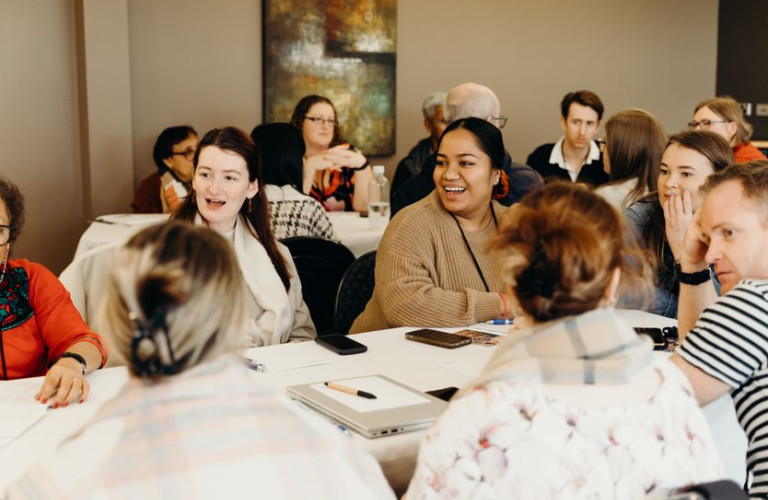Conference Catch Ups
Two conferences in July enabled provisionally certificated teachers and establishing teachers to connect, support each other, share ideas and gain new skills, insights and knowledge.

Almost 90 secondary and area school teachers, most with only one or two years’ experience, attended the Provisionally Certificated Teachers’ Conference, held in Wellington on July 20-21.
Participants clearly valued the opportunity to meet in person, compared with last year when the conference had to be held online due to COVID-19 restrictions.
The conference covered a number of important topics including: classroom management; guidance on continued development of curriculum and pedagogical practice; Te Reo and tikanga; surviving and thriving as a provisionally certificated teacher; teacher wellbeing; and how to build a support community and tap into existing networks.
Overcoming early career challenges
Panel discussions, run by practising teachers who had graduated recently from being beginning teachers, provided valuable insights into how to overcome the kinds of challenges teachers can encounter early in their careers. Panellists also shared things they wished they had known during this stage of their career and advised delegates on how to build the support structures needed to find balance and thrive as provisionally certified teachers.
A particular highlight of the conference was the Weaving Together Your Kete sessions, enabling delegates to put their new knowledge into a kete for them to take back to their school to support their practice. The sessions gave delegates opportunities to ask questions, build connections with teachers in the same subject area, have more in-depth discussions and share experiences as well as information and resources relevant to their curriculum areas.
Overall delegates found the conference provided inspiration and strategies for them to improve teaching practice, gave them some new ideas to share with staff at their schools and supported them in building critical connections.
PPTA Network of Establishing Teachers Conference – July 22-23, 2021
The theme of the PPTA Network of Establishing Teachers (NETs)conference, held in Wellington on July 22-23 was ‘Ko te Ao Anamata o te Mātauranga’ - ‘The Future of Education’. The purpose of the conference was to encourage new and establishing teachers to grow as leaders and to advocate for educational progress in Aotearoa New Zealand.
Our new and establishing teacher members loved the opportunity to network with other NETs and to learn from each other. Highlights of the conference included dinner at Coco at The Roxy, fantastic speakers and workshops, and excellent ‘unconference’ sessions.
Green Party education spokesperson Teanau Tuiono spoke passionately about his upbringing and involvement in activism, advocacy and organising. He advocated for the importance of all students having access to te reo Māori classes.
Panel lays down wero
It was great to hear from a panel of bold young activists – Gina Dao-McLay, Matariki Roche, Danielle Marks and Lourdes Vano - who have recent experiences as secondary school students. They laid down a wero/challenge to those who attended to critically examine their practice, particularly in relation to decolonising education and supporting rainbow communities.
Attendees chose from workshops that covered a range of topics, both in professional and industrial/activist spaces. PPTA staff-led workshops on claims development for 2022, campaigns and messaging, and imposter syndrome, often with support from Establishing Teachers Committee members. Master of Education students from Victoria University-led workshops called ‘Taking a Stand Against Racism’, and our panel of young activists led sessions around decolonising education and recognising our own privilege. In the professional space, Hosea Tuita’alili and Kōkā-hauwai Turei, PPTA’s new Āpiha Mātauranga, led interactive language sessions for those with little or no te reo Māori. Two informative sessions were presented by Bronwyn Houliston on the new Aotearoa New Zealand’s histories curriculum.
Three 30-minute ‘unconference’ sessions were held. These are opportunities for people to learn from each other through mini-workshops, discussions, quizzes or even yoga sessions.
Last modified on Wednesday, 17 May 2023 09:11
